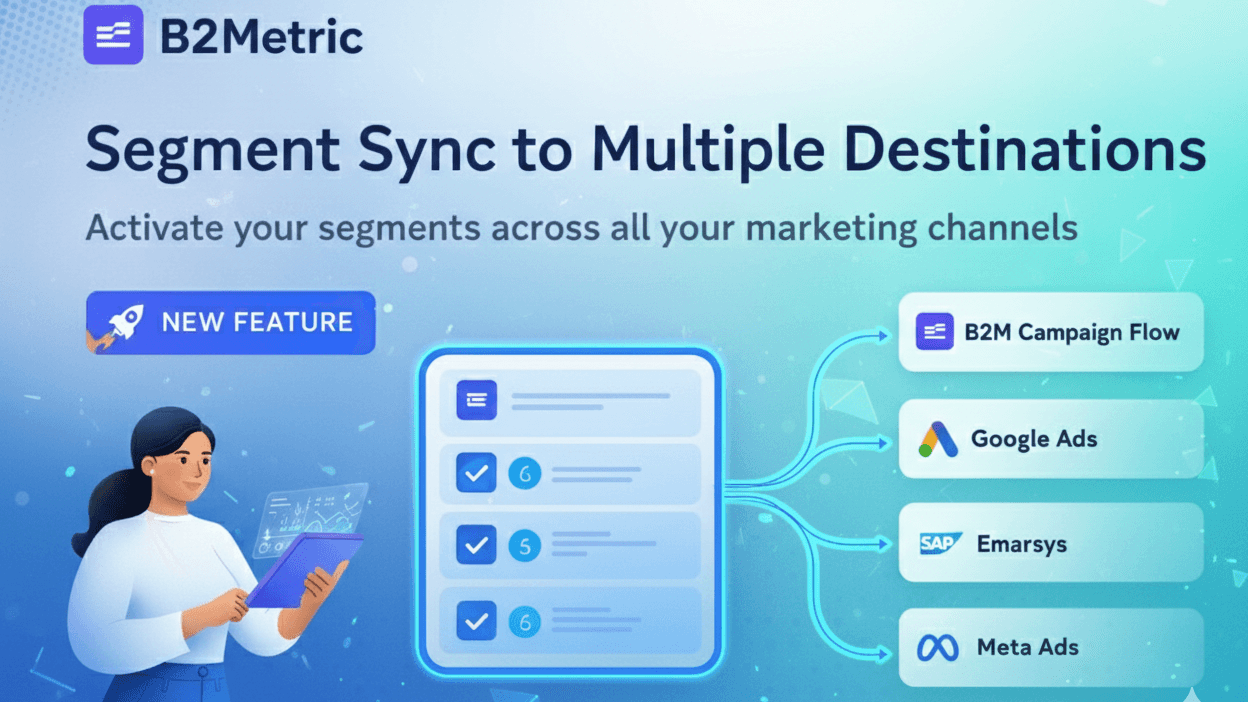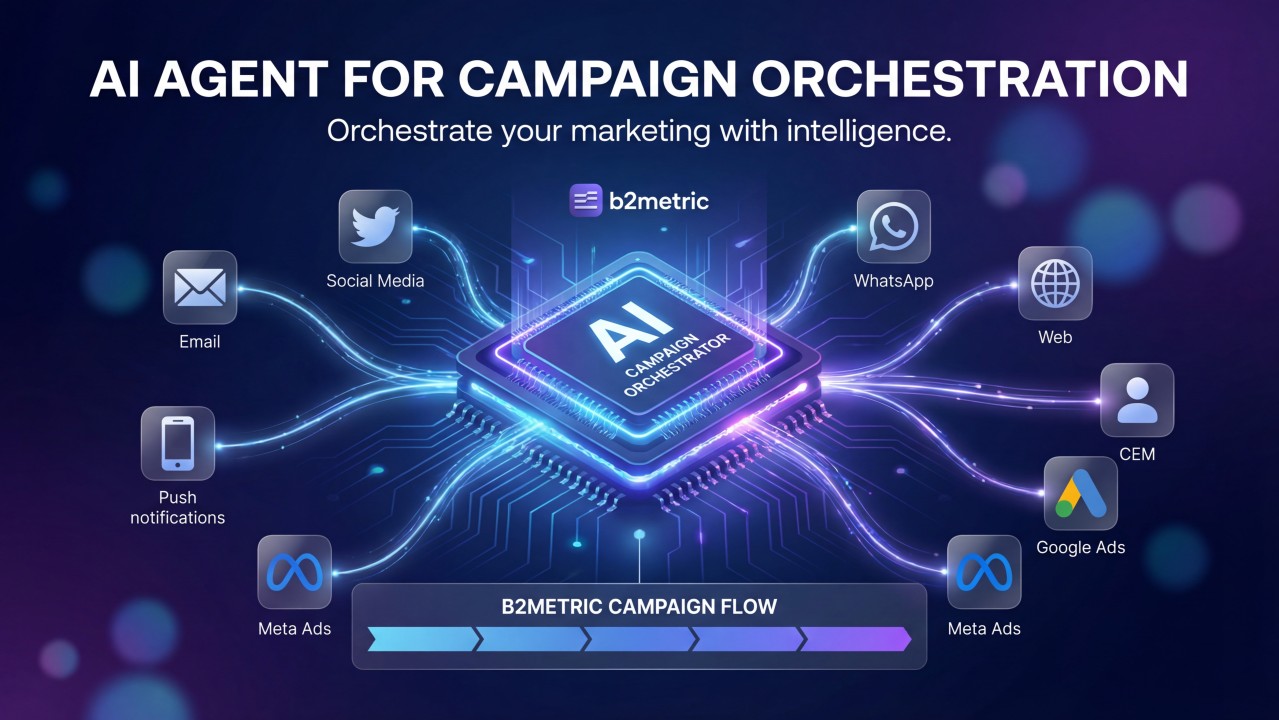Marketing and Analytics

Can Dinlenç
•
•
•
July 10, 2024
Jul 10, 2024
Jul 10, 2024
Jul 10, 2024




What does it mean to have Sales Qualified Leads (SQL)?
Sales Qualified Leads are customers who have moved past the stages of the sales process and are deemed ready for direct sales interactions. This qualification means that these leads have shown a level of interest and engagement with the company's offerings increasing the likelihood of them becoming paying customers.
Why are Sales Qualified Leads important?
Sales Qualified Leads are vital because they represent a subset of leads that are more likely to convert into sales. By focusing on Sales Qualified Leads sales teams can prioritize their efforts on leads with the potential leading to conversion rates and overall efficiency in sales. This targeted approach enables businesses to allocate resources resulting in a greater return on investment.
How to Increase SQL?
Boosting the quantity of Sales Qualified Leads involves refining generation and qualification processes. This can be done by tuning marketing strategies to attract prospects, enhancing lead scoring criteria to identify high potential leads more effectively and fostering closer collaboration between marketing and sales teams. Utilizing database marketing strategies can also help in better segmenting and targeting leads.
Differences Between SQL and MQL
Marketing Qualified Leads (MQL)
MQLs refer to leads who have displayed interest in a company's offerings through marketing efforts but have not undergone scrutiny by the sales department. They are usually in the stages of the purchasing journey. Need additional attention.
Sales Qualified Leads (SQL)
SQLs are leads that have been assessed and deemed prepared for sales interaction. They meet standards established by the sales team. Are seen as more likely to complete a purchase.
Qualification
Typical qualifications for an MQL may involve actions like downloading a whitepaper or subscribing to a newsletter whereas an SQLs requirements are stricter, such, as requesting a demonstration or engaging in dialogue with a sales representative.
Process
The process of transitioning an MQL into an SQL necessitates assessment and nurturing from both marketing and sales teams to confirm the leads interest and readiness to make a purchase.
How To Interpret SQL Numbers?
Interpreting SQL numbers involves analyzing the quantity and quality of the leads that have reached the sales-qualified stage. High numbers of SQLs suggest effective lead generation and qualification processes, while low numbers might indicate a need for improved targeting or lead nurturing strategies. Additionally, tracking the conversion rates of SQLs to actual sales provides insight into the effectiveness of your sales process and the quality of your leads. Using tools for performance marketing can help in assessing the efficiency of marketing efforts that contribute to SQL generation, while strategies like next best offer can optimize conversion rates by tailoring sales approaches to the specific needs of SQLs.
What does it mean to have Sales Qualified Leads (SQL)?
Sales Qualified Leads are customers who have moved past the stages of the sales process and are deemed ready for direct sales interactions. This qualification means that these leads have shown a level of interest and engagement with the company's offerings increasing the likelihood of them becoming paying customers.
Why are Sales Qualified Leads important?
Sales Qualified Leads are vital because they represent a subset of leads that are more likely to convert into sales. By focusing on Sales Qualified Leads sales teams can prioritize their efforts on leads with the potential leading to conversion rates and overall efficiency in sales. This targeted approach enables businesses to allocate resources resulting in a greater return on investment.
How to Increase SQL?
Boosting the quantity of Sales Qualified Leads involves refining generation and qualification processes. This can be done by tuning marketing strategies to attract prospects, enhancing lead scoring criteria to identify high potential leads more effectively and fostering closer collaboration between marketing and sales teams. Utilizing database marketing strategies can also help in better segmenting and targeting leads.
Differences Between SQL and MQL
Marketing Qualified Leads (MQL)
MQLs refer to leads who have displayed interest in a company's offerings through marketing efforts but have not undergone scrutiny by the sales department. They are usually in the stages of the purchasing journey. Need additional attention.
Sales Qualified Leads (SQL)
SQLs are leads that have been assessed and deemed prepared for sales interaction. They meet standards established by the sales team. Are seen as more likely to complete a purchase.
Qualification
Typical qualifications for an MQL may involve actions like downloading a whitepaper or subscribing to a newsletter whereas an SQLs requirements are stricter, such, as requesting a demonstration or engaging in dialogue with a sales representative.
Process
The process of transitioning an MQL into an SQL necessitates assessment and nurturing from both marketing and sales teams to confirm the leads interest and readiness to make a purchase.
How To Interpret SQL Numbers?
Interpreting SQL numbers involves analyzing the quantity and quality of the leads that have reached the sales-qualified stage. High numbers of SQLs suggest effective lead generation and qualification processes, while low numbers might indicate a need for improved targeting or lead nurturing strategies. Additionally, tracking the conversion rates of SQLs to actual sales provides insight into the effectiveness of your sales process and the quality of your leads. Using tools for performance marketing can help in assessing the efficiency of marketing efforts that contribute to SQL generation, while strategies like next best offer can optimize conversion rates by tailoring sales approaches to the specific needs of SQLs.
What does it mean to have Sales Qualified Leads (SQL)?
Sales Qualified Leads are customers who have moved past the stages of the sales process and are deemed ready for direct sales interactions. This qualification means that these leads have shown a level of interest and engagement with the company's offerings increasing the likelihood of them becoming paying customers.
Why are Sales Qualified Leads important?
Sales Qualified Leads are vital because they represent a subset of leads that are more likely to convert into sales. By focusing on Sales Qualified Leads sales teams can prioritize their efforts on leads with the potential leading to conversion rates and overall efficiency in sales. This targeted approach enables businesses to allocate resources resulting in a greater return on investment.
How to Increase SQL?
Boosting the quantity of Sales Qualified Leads involves refining generation and qualification processes. This can be done by tuning marketing strategies to attract prospects, enhancing lead scoring criteria to identify high potential leads more effectively and fostering closer collaboration between marketing and sales teams. Utilizing database marketing strategies can also help in better segmenting and targeting leads.
Differences Between SQL and MQL
Marketing Qualified Leads (MQL)
MQLs refer to leads who have displayed interest in a company's offerings through marketing efforts but have not undergone scrutiny by the sales department. They are usually in the stages of the purchasing journey. Need additional attention.
Sales Qualified Leads (SQL)
SQLs are leads that have been assessed and deemed prepared for sales interaction. They meet standards established by the sales team. Are seen as more likely to complete a purchase.
Qualification
Typical qualifications for an MQL may involve actions like downloading a whitepaper or subscribing to a newsletter whereas an SQLs requirements are stricter, such, as requesting a demonstration or engaging in dialogue with a sales representative.
Process
The process of transitioning an MQL into an SQL necessitates assessment and nurturing from both marketing and sales teams to confirm the leads interest and readiness to make a purchase.
How To Interpret SQL Numbers?
Interpreting SQL numbers involves analyzing the quantity and quality of the leads that have reached the sales-qualified stage. High numbers of SQLs suggest effective lead generation and qualification processes, while low numbers might indicate a need for improved targeting or lead nurturing strategies. Additionally, tracking the conversion rates of SQLs to actual sales provides insight into the effectiveness of your sales process and the quality of your leads. Using tools for performance marketing can help in assessing the efficiency of marketing efforts that contribute to SQL generation, while strategies like next best offer can optimize conversion rates by tailoring sales approaches to the specific needs of SQLs.
Table of contents
Recent blog posts

Murat Hacioglu
•
Feb 13, 2026
Unleash Your Segments: Meet Multi-Destination Campaign Sync!
Unleash Your Segments: Meet Multi-Destination Campaign Sync!
Marketing and Analytics
Marketing and Analytics

Murat Hacioglu
•
Feb 11, 2026
The Marketing Nightmare Ends Here: Goodbye Manual Grunt Work, Hello Intelligent Growth!
The Marketing Nightmare Ends Here: Goodbye Manual Grunt Work, Hello Intelligent Growth!
Marketing and Analytics
Marketing and Analytics

Murat Hacioglu
•
Jan 26, 2026
B2M Campaign Revenue Booster for Telecom: From Campaign Execution to Incremental Revenue
B2M Campaign Revenue Booster for Telecom: From Campaign Execution to Incremental Revenue
Marketing and Analytics
Marketing and Analytics
Related Blogs
Related Blogs



Murat Hacioglu
•
•
•
Feb 13, 2026
Unleash Your Segments: Meet Multi-Destination Campaign Sync!
Unleash Your Segments: Meet Multi-Destination Campaign Sync!
Marketing and Analytics



Murat Hacioglu
•
•
•
Feb 11, 2026
The Marketing Nightmare Ends Here: Goodbye Manual Grunt Work, Hello Intelligent Growth!
The Marketing Nightmare Ends Here: Goodbye Manual Grunt Work, Hello Intelligent Growth!
Marketing and Analytics



Murat Hacioglu
•
•
•
Jan 26, 2026
B2M Campaign Revenue Booster for Telecom: From Campaign Execution to Incremental Revenue
B2M Campaign Revenue Booster for Telecom: From Campaign Execution to Incremental Revenue
Marketing and Analytics

Product
Resources
Top Blogs
Copyright © 2025 B2Metric | All Rights Reserved

Product
Resources
Copyright © 2025 B2Metric | All Rights Reserved
Product
Subscribe to our newsletter!
Copyright © 2025 B2Metric | All Rights Reserved

Product
Subscribe to our newsletter!
Copyright © 2025 B2Metric | All Rights Reserved







